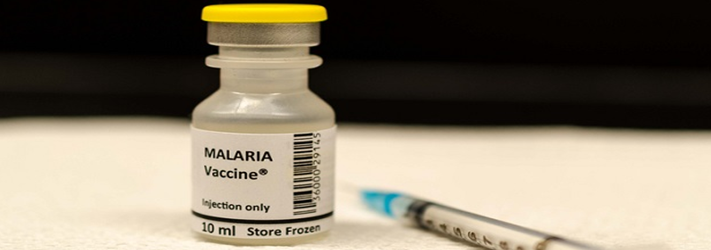In a landmark announcement, the World Health Organization (WHO) has recommended the use of the first-ever malaria vaccine for children. WHO Director-General Tedros Adhanom Ghebreyesus endorsed the RTS,S/AS01 malaria or Mosquirix – a vaccine developed by British drugmaker GlaxoSmithKline (GSK).
The WHO has recommended extensive use of the RTS,S/AS01 vaccine among children in Sub-Saharan Africa and other regions with moderate to high malaria transmission. The vaccine acts against the deadliest malaria transmission parasite, P. falciparum, which is prevalent in Africa. The symptoms of malaria are–fever, headaches, and muscle pain, then cycles of chills, fever, and sweating.
According to Tedros, ” RTS,S malaria vaccine – more than 30 years in the making – changes the course of public health history. This vaccine is a gift to the world”.
The WHO said in a statement it was recommending the widespread application of the vaccine among children in sub-Saharan Africa and other regions with moderate to high malaria transmission.
Many vaccines exist against viruses and bacteria, but this was the first time that the WHO recommended broad use of a vaccine against a human parasite.
According to the latest World Malaria Report, there were an estimated 229 million cases of malaria globally in 2019, with the WHO African region accounting for 94 per cent of all cases and deaths.
A child under five years old dies of malaria every two minutes, according to UNICEF estimates, while WHO says that malaria is responsible for 260,000 deaths each year in children under five in Africa.
The third phase of clinical trials revealed that the vaccine was 50 per cent efficacious in preventing malaria in children aged between five and 17 months. The vaccine is given in three doses between these ages, with a fourth dose about 18 months later.
According to Reuters news agency, experts said the challenge now would be mobilising financing for production and distribution of the vaccine. GSK has to date committed to producing 15 million doses of Mosquirix annually up to 2028 at a cost of production plus no more than 5% margin.
A global market study led by the WHO this year projected demand for a malaria vaccine would be 50 to 110 million doses per year by 2030 if it is deployed in areas with moderate to high transmission of the disease.
Resources:
https://www.livemint.com/science/health/who-approves-world-s-first-malaria-vaccine-11633573233450.html
The floating traffic jams off ports. The multiplying costs of moving freight. The resulting shortages of goods. All of this had seemed like an unpleasant memory confined to the COVID-19 pandemic. But no such luck!
An ocean container capacity crunch has hit global trade just as peak shipping season starts, with freight spot rates up some 30% over the past few weeks and heading higher.
The first joint Europe-wide assessment of the drivers and impact of chemical pollution by the European Environment Agency (EEA) and the European Chemicals Agency (ECHA) has concluded that, despite progress in some areas, “more work is still needed to reduce the impact of harmful substances on human health and the environment”. Key findings include:
The severe drought which has forced the Panama Canal, one of the world’s busiest trade passages, to limit daily crossings could impact global supply chains during a period of high demand.
In the early hours of March 26, the Singapore-flagged ship Dali, loaded with 5,000 containers, slammed into Baltimore’s Francis Scott Key Bridge, causing the 1.6-mile (2.5-kilometer) bridge to collapse in a matter of seconds. The Dali was departing for Colombo when the disaster struck. Initial fears were confirmed that half a dozen people lost their lives in the accident.
The pharmaceutical and biotechnology industries constantly seek innovative methods to enhance product stability, solubility, bioavailability and ease of use. Within this realm, CDMOs [Contract Development & Manufacturing Organizations] serve as invaluable partners in the development and production of high-quality drug products.
Chinese New Year 2024 is upon us, disrupting logistics from Asia starting Feb 10th. This event is expected to impact global shipping until Feb 21. Freight rates from Asia has skyrocketed with rates to the US surging by 3.5X and Europe by 6X.
Amid ongoing Red Sea diversions by shipping giants like Maersk, CMA, logistics managers are globally confronting a dual challenge of escalating ocean and air freight prices alongside cargo disruptions due to
Why will CM be the next generation on quality?
